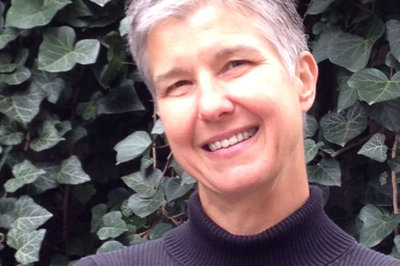Passionate fans of sensual stories have something to celebrate: Philadelphia’s Erotic Literary Salon commemorates its sixth anniversary May 20 in the second-floor lounge above the restaurant Time, 1315 Sansom St.
To mark the occasion, the event’s founder, Dr. Susana Mayer, has fashioned an evening of frank conversation and sexy performance. Up to 20 local authors will read from their erotic writing and the Femme-mynistiques, a trio of female artists, will entertain the audience with a mixture of dancing, singing and sex-positive hip-hop.
The evening begins with “The Talk: For Adults,” a popular feature of the Salon. It is designed to be a thoughtful discussion of some aspect of sexuality. According to Mayer, topics are either suggested by participants or they emerge based on the attendees’ comments and questions.
“‘The Talk’ is really about everything,” Mayer said. “It has to do with erotica; it has to do with sensuality. I should say sensuality and sexuality. That makes it easy, because erotica, pornography, all that comes under the sensual mode of it. And sexuality is really more the individual. It’s really a talk on a level not geared for children.”
On this evening, Terri Clark will discuss bisexuality. It’s a subject that Salon attendees are curious about, Mayer said, and one where more information is welcome.
“Every time we have any kind of talk or discussion around various other topics, sometimes bisexuality gets drawn in,” Mayer said. “And people, from their responses, I’m going, ‘Eh, they don’t get it right,’ so I’ve been wanting somebody to come and give a talk about bisexuality and she’s the perfect person.”
Indeed, Clark is well-placed to address the topic. A sex educator with more than 20 years’ experience, she works as prevention-services coordinator at ActionAIDS, where she oversees HIV testing and education services. In addition, she teaches courses on human sexuality at Arcadia University.

More important, Clark is bisexual, an identity she arrived at a bit unexpectedly, after many years openly and happily living as a lesbian.
“When I identify as part of the community, I usually identify as bisexual,” Clark said. “Sometimes I will use the word lesbian-bisexual. It’s what’s known as a fractured identity, so a hyphenated identity: lesbian-bisexual. And the reason that I do that is to maintain a connectedness with the lesbian community.”
Given Clark’s personal experience of issues like physical attraction, sexual identity and gender fluidity, she hopes to convey the richness and complexity of human sexuality to attendees.
One way Clark plans to accomplish that is by helping attendees redefine bisexuality. Ask what bisexuality is, she said, and people will usually reply, “Oh, it’s just somebody who’s attracted to males and females.”
But that definition is simplistic, she said.
“It’s way too dichotomous and does not capture the fluidity and complexity of people who identify as bisexuals,” Clark said.
Some bisexuals, she noted, love individuals first and genders second, whereas others are primarily attracted to people of one gender, but are open to exploring with lovers of another. And those are just two expanded definitions of bisexuality, among others.
At the same time, Clark hopes to dispel common myths about bisexuality. They include the belief that bisexuals are unfaithful to their partners and the idea that bisexuals are “fence-sitters” who just need to make up their minds.
It’s important to confront these myths head-on, she added.
“The myths are the reality of bisexuality, and it’s those myths that drive the biphobia that comes from both the lesbian and gay community and the heterosexual community,” Clark said.
Better sex education would certainly help, but it shouldn’t be limited to teenagers. Adults need accurate, nonjudgmental information about sex too, Clark noted.
“We do a pretty abysmal job of sexuality education. We do not validate people for having attraction across the spectrum of people. We just want to put people in boxes, into finite ‘Are you male or female? Are you gay or straight? Are you Republican or Democrat? Do you like leather or lace?’ It goes on and on and on.”
Clark expects to find a receptive audience at the Erotic Literary Salon. In fact, she sees an overlap between its authors and attendees and other groups whose sexual expression sometimes marginalizes them. After all, openly admitting that one writes or enjoys erotica is still likely to meet with disapproval or puzzlement.
“There’s not a whole lot of permission in society for people to do that,” Clark said. “It’s often pooh-poohed. It can be seen as pornographic, and there’s a negative image of erotica.”
For more information, visit www.theEroticliterarysalon.com.
